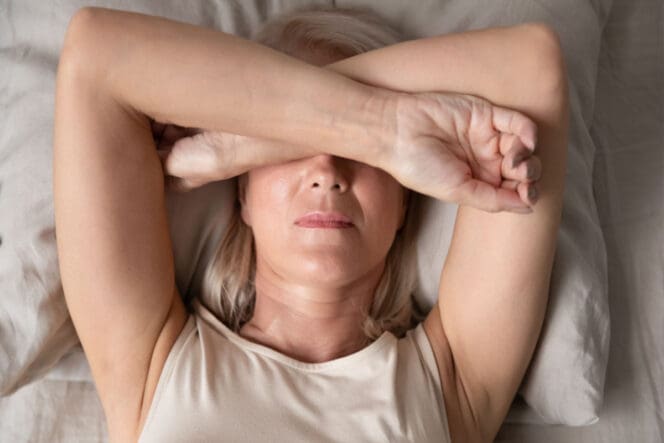Your eyes might be itchy and watery when you wake up. It can be an inconvenience if you need to get up for an early meeting or leave for work early in the morning. Getting up with pain in your eyes means your body has sent you a warning through the trigeminal nerve, which is a nerve connecting the brain to the face.
Causes
If your eyes itch every day when you wake up, the likely culprit is that they dried up during the night. Another reason is that you may have gotten a foreign object in your eye while you slept. Here are the chief reasons why your eyes hurt when you wake up from sleeping.
Dry Eyes
People over the age of 50 are more likely to experience dry eyes. Women are more likely to experience a lack of tears, especially if they are pregnant. Birth control medications and menopause also cause dry eyes. Other causes of dry eyes include:
- Poor tear quality
- Inability to close eyes completely while sleeping (nocturnal lagophthalmos)
- Inadequate tears
Conjunctivitis (Pink Eye)
Pink eye is when your eyelids and eyeball membrane develop an infection that causes pain and a reddish appearance. There are many types of pink eye, depending on the causes:
- Chlamydial conjunctivitis
- Allergic conjunctivitis
- Bacterial conjunctivitis (non-gonococcal)
- Gonococcal conjunctivitis
- Viral conjunctivitis
Injury
A foreign item in your eye is always bothersome. At times, it’s painful.
Any foreign object, like dust or stray eyelash, might cause harm. You may experience discomfort in the morning if something enters your eye while you sleep.
Blepharitis (Eyelids Inflammation)
It is usually a sign of bacterial or yeast infection, accompanied by a feeling that there is a small stone in your eye. There is also irritation of the eyes and swelling of the eyelids. The bacteria staphylococcus may cause blepharitis.
Recurrent Epithelial Erosion
An injury may cause a blister to form, which you tear open when opening your eyes in the morning. It can occur years after the injury, so it is a potentially recurring condition.
Allergies
Allergies can cause redness, swelling and itching, contributing to morning pain around the eyes. It does not matter what kind of allergies you are dealing with to have an issue with your eyes. It can be environmentally seasonal, such as during a time of high pollen count, or it can be a regular allergy to pet dander, dust or mold.
Angle Closure Glaucoma
Angle closure glaucoma causes your iris to bulge, with the severe version causing nausea, severe headache, and blurred vision. Handle acute angle closure glaucoma as an emergency, that warrants immediate treatment.
Eyestrain
Activities that strain your eyes for long periods will hurt your eyes in the morning. Example of them include looking at a smartphone, a TV, a computer monitor or even exposure to direct sunlight without sunglasses.

Treatment
Treatment of eye strain depends on the cause. So cause by cause, here are ways to treat painful eyes:
- Allergies: Get rid of or stay away from the object causing the allergies. In the short term, buying oral drugs that cure allergies at the local drug store may assist. Eye drops are adequate, although they take about two weeks. Antihistamines should help.
- Caused by bacteria: Your doctor may prescribe antibiotics, which are drugs that fight bacterial infection. Sulfacetamide or gentamicin are inexpensive and suitable antibiotics.
- Caused by virus: Maintain good hygiene, like washing your hands with soap and water. You should also stay off work for about two weeks to prevent spreading the virus to others.
- Blepharitis (eyelids inflammation): You can massage the eyelids and clean the eyes using diluted baby shampoo. Dipping a cloth in warm water and massaging the eye also helps.
- Eyestrain: Take breaks to rest your eyes whenever you are staring at a bright screen or place for an extended period.
- Angle closure: its severe form warrants topical steroid initially and laser or incisional surgical therapy.
Prevention
Avoid things that may cause a painful eye, such as:
- When working using a computer, take breaks to rest your eyes.
- Lower the computer screen below the eye level.
- Avoid smoking and stay away from smoke.
- Wear sunglasses in bright areas
- Avoid looking directly at a welding session
When to See a Doctor
It’s time to get to your doctor for a second opinion if you notice no improvement in your vision and with your level of pain — or if your eye is more painful. Also seek medical advice if you have blurred vision.
References
-
Menopause and dry eye. A possible relationship. (July 2009). Gynecological Endocrinology.
-
Conjunctivitis. (September 2015). Primary Care: Clinics in Office Practice.
-
Diagnosis and management of blepharitis: An optometrist’s perspective. (August 2016). Clinical Optometry.
-
A review of the causes and treatment of bacterial and allergic conjunctivitis. (October 1995). Clinical Therapeutics.
-
Blepharitis treatment. (Retrieved May 2022). Stanford Healthcare.
Last Updated July 1, 2022
Note: This page should not serve as a substitute for professional medical advice from a doctor or specialist. Please review our about page for more information.